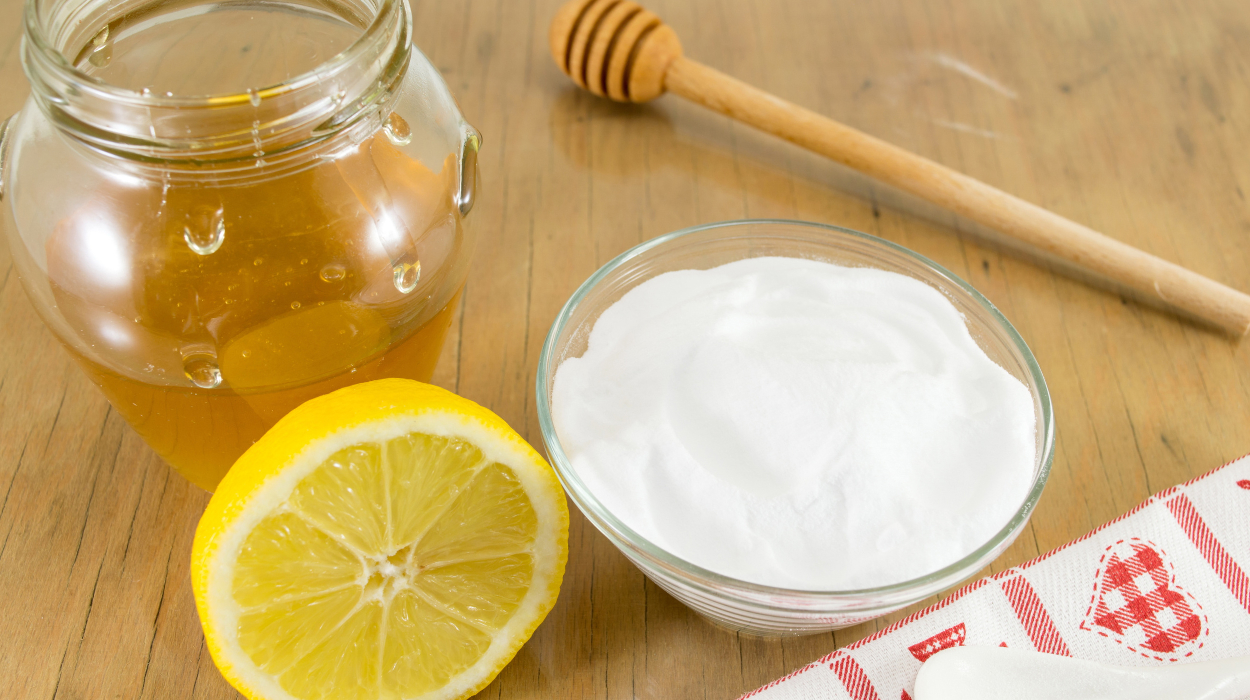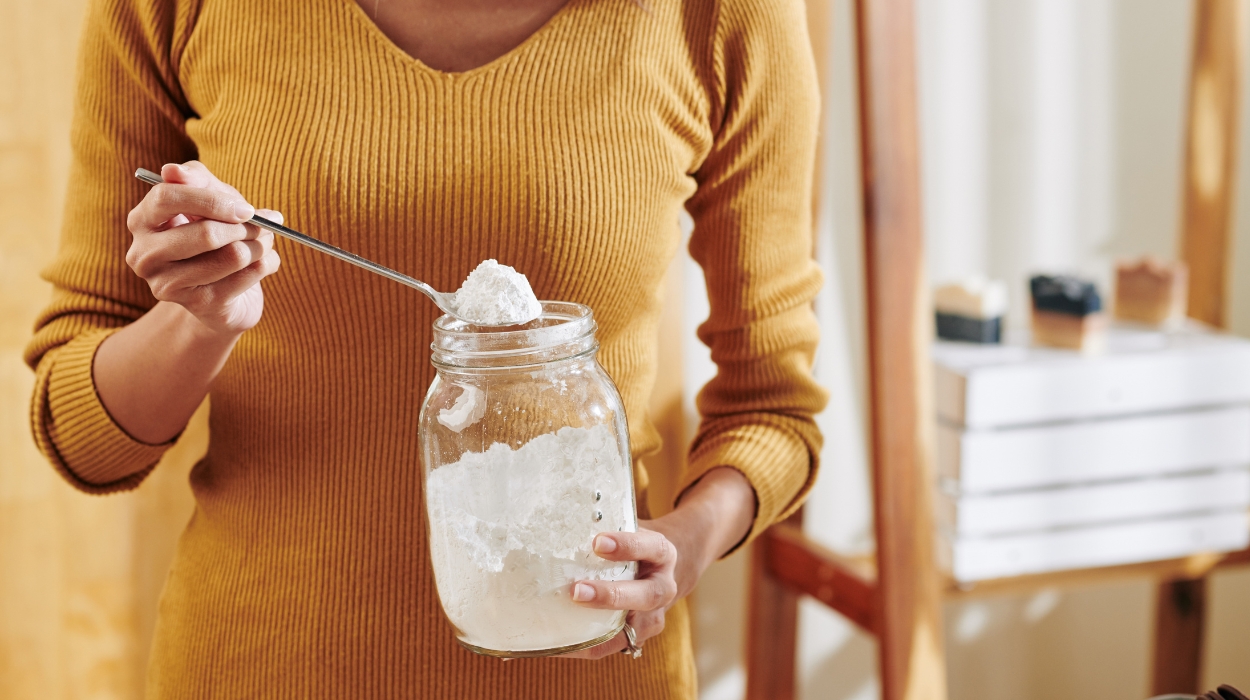Baking soda is a kitchen staple with several uses that has recently become a focus of curiosity for its potential role in weight management. The idea that such a simple and common ingredient could also aid in shedding extra pounds is intriguing to many people.
However, are these claims backed by research, or are they pure myth?
Can we really use baking soda for weight loss, or should we add it to our list of foods to avoid?
Perhaps, the answer lies somewhere in between.
In this article, we aim to clarify the mystery surrounding using baking soda for weight loss. We will explore the possible benefits and drawbacks of using it and the safest ways to incorporate it into your routine.
Keep reading to gain a balanced perspective on this trending dietary supplement as we separate fact from fiction and address any safety concerns.
Is Drinking Baking Soda Good For Weight Loss?
While no concrete scientific evidence supports the claim that baking soda can directly aid in weight loss, research has shown that it can offer some indirect benefits when incorporated into your exercise routine. For example, baking soda can help reduce fatigue during high-intensity workouts, making it a helpful addition to your fitness regimen.
It is important to consult a healthcare provider before consuming baking soda for its health benefits due to potential adverse effects from excessive intake.
Baking Soda For Weight Loss: How It Helps

Baking soda, also known as sodium bicarbonate, is a versatile product often praised for its practical benefits. From teeth whitening to general house cleaning, it has seemingly endless uses However, is there any correlation between baking soda and weight loss?
Not necessarily.
There is limited and inconclusive scientific evidence to support the claim that it can help with shedding excess fat. may, however, have minor indirect effects on weight loss. In fact, ingesting too much baking soda can lead to severe metabolic changes[1] such as:
- Metabolic alkalosis (having blood that is too alkaline).
- Hypokalemia (low levels of potassium in the blood).
- Hypernatremia (high levels of sodium in the blood).
- Hypoxia (low levels of oxygen in the blood).
Therefore, your focus should be on proven strategies on how to lose weight. This means prioritizing a well-rounded, whole-food diet filled. Focus on including healthy unsaturated fats, high-quality protein, and limiting processed carbs. In addition, aim for a caloric deficit[2] of 500-1000 calories a day.
It was previously believed that baking soda helps increase metabolism. However, there is little evidence to support this claim. One of the most effective and healthy ways to increase your metabolism is by maintaining a caloric deficit, incorporating healthy fats, and having a high-protein diet.
Numerous long-term clinical trials have demonstrated that having a high-protein diet[3] can help with weight loss and prevent weight regain by preserving lean muscle mass and boosting your metabolic rate. A high-protein diet includes at least 30% of your caloric intake from protein. Unlike baking soda, there is no evidence of any negative impact on kidney function, making it a healthy and safe option.
Interestingly, one of the lesser-known ways you can integrate baking soda to promote weight loss is in your exercise routine.
Enhanced Exercise Performance
One way baking soda can indirectly prevent weight gain is by improving performance[4] for high-intensity exercise. The underlying mechanism is due to its alkaline nature. During intense exercise, muscles produce lactic acid and create an acidic environment. This acidity can contribute to muscle fatigue and general discomfort.
Baking soda helps reduce fatigue by acting as a buffer and helps counteract the acidity that builds up in your muscles during exercise. This allows you to exercise harder and for longer.
This buffering effect is particularly beneficial in activities that involve short, intense bursts of energy, such as sprinting or high-intensity interval training. Studies have shown that supplementing with baking soda[5] before these types of workouts can significantly improve your performance.
Additionally, you could combine a plant-based or whey protein powder before or after your workouts to give you an extra dose of protein to meet your dietary needs.
How To Use Baking Soda For Weight Loss

Baking soda recipes should not be used with the intention of direct weight loss. That being said, baking soda appears to have benefits regarding exercise endurance which can lead to successful weight loss.
If you’re looking for a way to suppress your appetite, consider adding another supplement to your diet.
You may also have seen advice for adding baking soda to coffee for weight loss; however, no scientific literature supports this claim.
Baking soda should be consumed in extremely small amounts and adequately diluted. A common guideline is a one-quarter teaspoon of baking soda mixed in with a glass of water, lemon juice, or apple cider vinegar.
Lemons and apple cider vinegar are known for their acidic properties, which can help neutralize baking soda’s alkaline properties. However, it’s important to be aware that the acidic nature of these substances can harm tooth enamel if not used properly.
To avoid potential damage, mixing the vinegar or lemon juice with water is recommended. This will ensure you can enjoy the benefits of these natural remedies without negative side effects.
Again, due to limited evidence, it may be best to avoid such mixtures before further evidence arises.
Is Drinking Baking Soda Safe For Weight Loss Safe?
While baking soda is generally considered safe, consuming it excessively or inappropriately can pose some health risks. Additionally, there is no proven connection between consuming baking soda and weight loss, either before or after.
Baking soda is alkaline, which means it has a higher pH value. When ingested, it can temporarily neutralize stomach acid. However, excess consumption may lead to a condition known as metabolic alkalosis[6] or elevated blood pH levels and can cause a range of symptoms, including:
- Nausea and vomiting: excessive vomiting can lead to a loss of stomach acid, contributing to alkalosis.
- Heart failure.
- Hand tremors.
- Muscle twitching or cramps.
- Confusion: Severe alkalosis may affect the central nervous system leading to confusion and even seizures.
It’s important to highlight that these circumstances are rare and occur when ingesting baking soda in large amounts.
Another potential side effect of ingesting too much baking soda is stomach rupture, which can happen due to the rapid formation of gas in the stomach. The National Capitol Poison Center strongly recommends that people do not ingest baking soda on an empty stomach.
Using baking soda in moderation and for antacid use is generally safe for most people. After a particularly spicy or fatty meal, this chemical reaction may help your stomach feel better, but it would not change how your body absorbs the calories.
Kidney Function
The alkaline nature of baking soda can affect kidney function.[6] Prolonged use or excessive amounts may strain the kidneys, especially in individuals with pre-existing kidney conditions. People with a history of alcohol abuse are especially at risk of baking soda toxicity, and over-the-counter indigestion tablets are likely a safer alternative.
Sodium Content
Baking soda contains sodium. Individuals on a low-sodium diet or those with high blood pressure should be mindful of their sodium intake from baking soda. It’s also especially important to stay hydrated[7] when adding sodium to your diet by getting at least 6-8 cups daily.
Consultation With Healthcare Professionals
Individuals with kidney issues, high blood pressure, or other health concerns should consult healthcare professionals before incorporating baking soda into their routine. The healthcare provider can advise on the right amount of baking soda that can be used safely and effectively, as well as monitor any potential side effects or interactions with other medications.
It’s always better to err on the side of caution and seek professional medical advice to ensure that using baking soda is safe for your particular situation.
Conclusion
It’s important to understand that while baking soda has some benefits, adding baking soda as a means of losing weight lacks substantial scientific support. Sustainable weight loss is best achieved through a balanced diet, reducing sugar intake, regular exercise, and a healthy lifestyle. Always seek out personalized medical advice before making significant changes to your diet.
Frequently Asked Questions
Mix baking soda with lemon juice or apple cider vinegar. Aim to add one-quarter of a teaspoon of baking soda to a glass. Keep in mind that this is not a proven way to shed excess body fat.
Consuming baking soda can neutralize stomach acid, which alleviates stomach-related issues or symptoms of heartburn by releasing carbon dioxide gas. There are also some proven benefits when it comes to exercise.
There is no quick solution to lose tummy fat. The most effective way to reduce total body fat is by incorporating a healthy diet, limiting sugar intake, and engaging in consistent exercise. Adding in a belly fat burner can also be beneficial.
Before you decide to ingest baking soda on a daily basis, it’s important to consult with your healthcare provider. Excessive amounts of baking soda can cause metabolic alkalosis and affect kidney function.
 Expert's opinion
Expert's opinion
